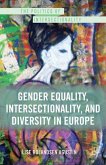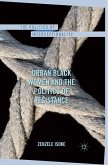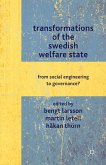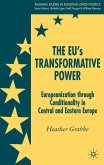Gender is being marginalized with the increased attention to "multiple discrimination" and civil society landscape at the transnational level is increasingly diversified. The book looks at the processes of (strategic) degendering in EU policy-making and on the interaction between EU institutions and European women's organizations.
"Intersectionality has become the topic of the moment as both a discourse and an institutional process within the EU. Rolandsen-Agustin's analysis of how both dimensions of intersectionality operate is an essential contribution to understanding its promise and its pitfalls for European feminism. It combines attention to the institutionalization of ideas and resources within the frameworks of the EU with consideration of the strategic choices of policy makers and the mobilizations among differently positioned actors in civil society, artfully balancing attention to structure and agency in what feminists are able to do to keep gender on the agenda. By tracing the specifics of the discourse of diversity in the instance of policies about violence against women, this book offers critical theoretical insights into feminism and social policy in Europe." - Myra Marx Ferree, Alice H. Cook Professor of Sociology and Director, European Union Center of Excellence, University of Wisconsin-Madison, USA
"This is a theoretically engaging and methodologically sophisticated book on one of the key debates in contemporary politics and genderstudies: gender equality and its relationship to intersectionality. The book is an excellent study about the ways in which gender equality and diversity are framed and institutionalized in European policy. Its empirical case studies reveal how gender equality and diversity interact in such key debates as violence and in the politics of social movements. Its theoretical and methodological contributions and empirical findings make it an indispensable text to scholars in gender studies, politics, European Studies and International Relations." - Johanna Kantola, Academy Research Fellow, Gender Studies, University of Helsinki, Finland
"This book develops a dynamic and comprehensive intersectional approach for understanding gender violence policies in the European Union. It is an important and thought-provoking resource for genderand diversity activists and researchers." - Emanuela Lombardo, Lecturer in Political Science, Universidad Complutense de Madrid, Spain
"This is a theoretically engaging and methodologically sophisticated book on one of the key debates in contemporary politics and genderstudies: gender equality and its relationship to intersectionality. The book is an excellent study about the ways in which gender equality and diversity are framed and institutionalized in European policy. Its empirical case studies reveal how gender equality and diversity interact in such key debates as violence and in the politics of social movements. Its theoretical and methodological contributions and empirical findings make it an indispensable text to scholars in gender studies, politics, European Studies and International Relations." - Johanna Kantola, Academy Research Fellow, Gender Studies, University of Helsinki, Finland
"This book develops a dynamic and comprehensive intersectional approach for understanding gender violence policies in the European Union. It is an important and thought-provoking resource for genderand diversity activists and researchers." - Emanuela Lombardo, Lecturer in Political Science, Universidad Complutense de Madrid, Spain







